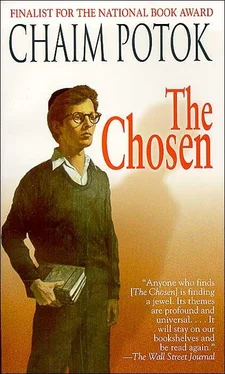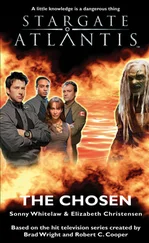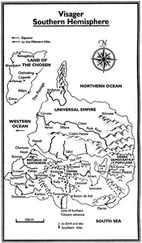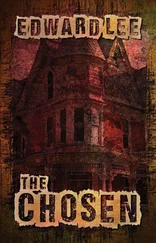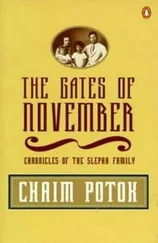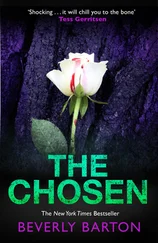That evening I waited for Danny more than half an hour just inside the double door of the school before I decided to go home alone. The next morning he wasn't in front of the synagogue. I waited as long as I could, then took the trolley to school. I was sitting at a table preparing for the Talmud session, when I saw him pass me and nod his head in the direction of the door. He looked white-faced and grim, and he was blinking his eyes nervously. He went out, and a moment later I followed. I saw him go into the bathroom, and I went in after him. The bathroom was empty. Danny was urinating into one of the urinals. I stood next to him and assumed the urinating position. Was he all right? I wanted to know. He wasn't all right, he told me bitterly. His father had read the account of the rally in the Yiddish press. There had been an explosion yesterday at breakfast, last night at supper, and this morning again at breakfast. Danny was not to see me, talk to me, listen to me, be found within four feet of me. My father and I had been excommunicated from the Saunders family. If Reb Saunders even once heard of Danny being anywhere in my presence, he would remove him immediately from the college and send him to an out-of-town yeshiva for his rabbinic ordination. There would be no college education, no bachelor's degree, nothing, just a rabbinic ordination. If we tried meeting in secret, Reb Saunders would find out about it. My father's speech had done it. Reb Saunders didn't mind his son reading forbidden books, but never would he let his son be the friend of the son of a man who was advocating the establishment of a secular Jewish state run by Jewish goyim. It was even dangerous for Danny to meet me in the bathroom, but he had to tell me. As if to emphasize how dangerous it was, a Hasidic student came into the bath· room just then, took one look at me, and chose the urinal farthest from me. A moment later, Danny walked out. When I came into the hallway, he was gone.
I had expected it, but now that it had happened I couldn't believe it. Reb Saunders had drawn the line not at secular literature, not at Freud – assuming he knew somehow that Danny had been reading Freud – but at Zionism. I found it impossible to believe. My father and I had been excommunicated – not only from the Saunders family, apparently, but also from the anti Zionist element of the Hasidic student body. They avoided all contact with me, and even stepped out of my way so I would not brush against them in the halls. Occasionally I overheard them talking about the Malter goyim. During lunch I sat at a table with some of my non-Hasidic classmates and stared at the section of the room the Hasidic students always took for themselves. They sat together in the lunchroom, and my eyes moved slowly over them, over their dark clothes, fringes, beards, and earlocks and it seemed to me that every word they were saying was directed against me and my father. Danny sat among them, silent, his face tight. His eyes caught mine, held, then looked slowly away. I felt cold with the look of helpless pleading I saw in them. It seemed so incredible to me, so outrageously absurd. Not Freud but Zionism had finally shattered our friendship. I went through the rest of· the day alternating between violent rage at Reb Saunders' blindness and anguished frustration at Danny's helplessness.
When I told my father about it that night, he listened in silence.
He was quiet for a long time afterward; then he sighed and shook his head, his eyes misty. He had known it would happen, he said sadly. How could it not happen?
'I don't understand it, abba.' I was almost in tears. 'In a million years I'll never understand it. He let Danny read all the books I gave him, he let us be friends all these years even though he knew I was your son. Now he breaks us up over this. I just don't understand it.'
'Reuven, what went on between you and Danny all these years was private. Who really knew? It was probably not difficult for Reb Saunders to answer questions from his followers, assuming there were any questions, which I doubt, simply by saying that I was at least an observer of the Commandments. But he has no answer anymore to my Zionism. What can he tell his people now? Nothing. He had to do what he did. How could he let you continue to be friends? I am sorry I was the cause of it. I brought you together, and now I am the cause of your separation. I am deeply sorry.'
'He's such a – a fanatic!' I almost shouted.
'Reuven,' my father said quietly, 'the fanaticism of men like Reb Saunders kept us alive for two thousand years of exile. If the Jews of Palestine have an ounce of that same fanaticism and use it wisely, we will soon have a Jewish state.'
I couldn't say anything else. I was afraid my anger would bring me to say the wrong words.
I went to bed early that night but lay awake a long time, trying to remember all the things Danny and I had done together since the Sunday afternoon his ball had struck me in the eye.
For the rest of that semester, Danny and I ate in the same lunch· room, attended the same classes, studied in the same school synagogue, and often rode in the same trolley car – and never said a single word to each other. Our eyes met frequently, but our lips exchanged nothing. I lost all direct contact with him. It was an agony to sit in the same class with him, to pass him in the hallway, to see him in a trolley, to come in and out of the school building with him – and not say a word. I grew to hate Reb Saunders with a venomous passion that frightened me at times, and I consoled myself with wild fantasies of what I would do to him if he ever fell into my hands.
It was an ugly time and it began to affect my schoolwork to a point where some of my college teachers called me into their offices and wanted to know what was happening, they expected better from me than they were receiving. I made vague allusions to personal problems and went away from them cold with despair. I talked about it with my father as often as I could, but there seemed to be little he could do to help me. He would listen somberly, sigh, and repeat that he had no intention of quarreling with Reb Saunders, he respected his position in spite of its fanaticism.
I wondered often during those months whether Danny was also going through these same dreadful experiences. I saw him ' frequently. He seemed to be losing weight, and noticed he was wearing different eyeglasses. But he was very carefully avoiding me, and I knew enough to stay away from him. I didn't want word to get back to his father that we had been seen together.
I hated the silence between us and thought it unimaginable that Danny and his father never really talked. Silence was ugly, it was black, it leered, it was cancerous, it was death. I hated it, and I hated Reb Saunders for forcing it upon me and his son.
I never knew myself capable of the kind of hatred I felt toward Reb Saunders all through that semester. It became, finally, a blind raging fury, and I would find myself trembling with it at odd moments of the day – waiting to get into a trolley car, walking into a bathroom, sitting in the lunchroom, or reading in the library. And my father only added to it, for whenever I began to talk to him of my feelings toward Reb Saunders he invariably countered by defending him and by asserting that the faith of Jews like Reb Saunders had kept us alive through two thousand years of violent persecution. He disagreed with Reb Saunders, yes, but he would countenance no slander against his name or his position. Ideas should be fought with ideas, my father said, not with blind passion. If Reb Saunders was fighting him with passion, that did not mean that my father had to fight Reb Saunders with passion.
And Reb Saunders was fighting with passion. He had organized some of the Hasidic rebbes in the neighborhood into a group called The League for a Religious Eretz Yisroel. The work of this organization had begun mildly enough in early March with the handing out of leaflets. Its aims were clear: no Jewish homeland without the Torah at its center; therefore, no Jewish homeland until the coming of the Messiah. A Jewish homeland created by Jewish goyim was to be considered contaminated and an open desecration of the name of God. By the end of March, however, the leaflets had become inflammatory in tone, threatening excommunication to all in the neighborhood who displayed allegiance to Zionism, even at one point threatening to boycott neighborhood stores owned by Jews who contributed to, participated in, or were sympathetic with Zionist activities. A mass anti Zionist rally was announced for a date a few days before Passover. It was poorly attended, but it made some of the English papers, and the reports of what had been said were ugly.
Читать дальше
